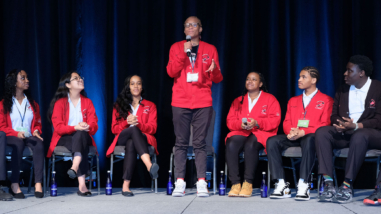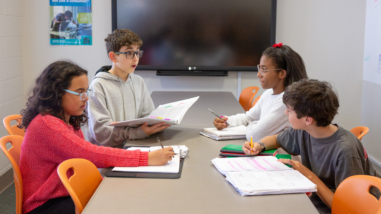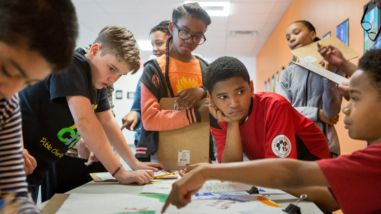GlassLab, Inc.
For Assessing Collaborative Problem Solving With Digital Games
-
Amount$249,998
-
Program
-
Date Awarded11/17/2014
-
Term12.0 Months
-
Type of SupportProject
Strategies
Overview
GlassLab works across the game industry to create "innovative games for good" that focus on positive outcomes in the areas of play, education, and nutrition. GlassLab will develop a project that will demonstrate the feasibility of assessing collaborative problem solving within digital games, with a focus on generating data that teachers can use to improve learning. A successful project would support the Program’s goal of demonstrating for the field that it is possible to measure through gaming one of the deeper learning competencies, namely collaboration, not currently included in the Common Core State Standards assessments.
About the Grantee
Grantee Website
www.lrng.org
Address
209 Redwood Shores Blvd, Redwood City, CA, 94065, United States
Grants to this Grantee
for assessing collaborative problem solving with digital games
GlassLab transforms learning and assessment at scale by developing and distributing effective and engaging digital learning games to improve student learning outcomes, with a focus on underserved, at-risk youth. GlassLab will double the size of the population using its game-based assessments of collaborative problem solving, refine and remove technical and user-experience barriers stunting the application of collaborative problem solving at scale, and build the evidence base. This project demonstrates for the field that it is possible to use games to measure collaboration, which is a key deeper learning competency not currently included in Common Core State Standards assessments.
for assessing collaborative problem solving with digital games
GlassLab works across the game industry to create "innovative games for good" that focus on positive outcomes in the areas of play, education, and nutrition. GlassLab will develop a project that will demonstrate the feasibility of assessing collaborative problem solving within digital games, with a focus on generating data that teachers can use to improve learning. A successful project would support the Program’s goal of demonstrating for the field that it is possible to measure through gaming one of the deeper learning competencies, namely collaboration, not currently included in the Common Core State Standards assessments.



